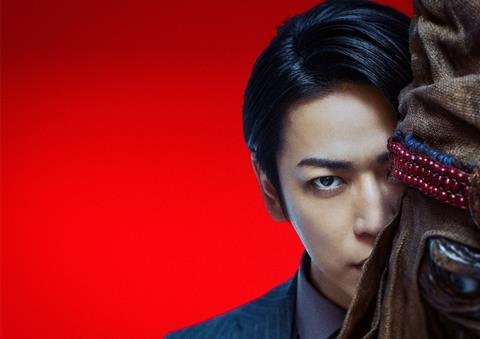A psychopathic lawyer faces off against a masked serial killer in Takashi Miike’s blood-soaked latest

Dir: Takashi Miike. Japan. 2023. 118mins
Hard-nosed lawyer Akira Ninomiya (Kazuya Kamenashi) is ambushed in a Tokyo parking lot by a masked maniac wielding an axe and miraculously survives. The assailant is a serial killer with a uniquely unpleasant trademark: he cleaves open his victims’ skulls and removes their brains. But Akira is equally ruthless, and becomes obsessed with the idea of finding his assailant before the police do. A serial killer versus psychopath face-off, directed by Takashi Miike:, this is a lip-smacking proposition for genre fans. And, for a while at least, the film delivers, with squirting geysers of blood coating much of the set, and Kamenashi’s smiling sadist in a bespoke suit is a stand out. But then comes a third act that ties itself in knots of exposition, while the pace grinds to a halt. Ultimately, it’s a bit of a mess, but it has luridly entertaining moments nonetheless.
A let-down
For all the macabre fairytale-meets-horror tonal mash up, and the generous body count, the film has an offbeat message of moral redemption – which, let’s face it, is one of the more unexpected things to turn up in a Takashi Miike film. (And he once put a giant ninja frog on screen.) The reputation of the prolific director will be a selling point for the picture in further festivals, in particular genre specialist events (it screens in Tokyo having premiered in Sitges), as will the film’s source material – it was adapted from a popular novel by Mayusuke Kurai. Lumberjack The Monster will be released in Japan in December, but may prove too niche a proposition to tempt distributors elsewhere.
The film starts with a scene-setting flashback to a police raid on a grisly lair, in which a husband and wife perform surgical modifications on a collection of abducted children. One of the kids reads a picture book titled ’Lumberjack The Monster’, a macabre tale of a cannibalistic mass murdering creature which gives the cursed book in The Babadook a run for its money in the inappropriate child reading material stakes. It is this book that inspires the killer’s costume – his or her identity concealed behind a gruesome mask with boggling eyes – and, in the axe, their weapon of choice.
But the first murder we witness is not perpetrated by the bag-headed axe-man. Rather it is a coolly opportunistic termination by Akira of a hospital employee who had rather foolishly hoped to blackmail the lawyer and his surgeon buddy, and fellow psychopath, Sugitani (Shota Sometani). We get an inkling that this may not be the first notch in Akira’s murder belt, but there’s little in the way of backstory to explain the friendship between these two impossible pretty maniacs.
Even though Akira clearly knows how to handle himself in a potentially fatal situation, the axe attack takes him by surprise. He sustains a blow to the head. And during the hospital check-up afterwards, an anomaly is discovered: Akira has a ‘neural chip’ (a now-illegal behavioural modification) implanted in his brain. But even with the benefit of a good 30 minutes of solid exposition in the final act, the reasons behind his brain surgery remain somewhat tenuous and far-fetched.
Miike drenches the film in brash, stylised elements – saturated, sleazy neons and score full of sawing, murderous violins – but they cannot disguise the fact that ultimately, despite Kamenashi’s devilishly charismatic performance, this is something of a let down.
Production companies: Warner Bros Pictures Japan
International Sales: Warner Bros Pictures Japan kury.tamura@wbd.com
Producer: Misako Saka
Screenplay: Hiroyoshi Koiwai, from a novel by Mayusuke Kurai
Cinematography: Nobuyasu Kita
Editing: Naoichirô Sagara
Production design: Akira Sakamoto
Music: Koji Endo
Main cast: Kazuya Kamenashi, Nanao, Riho Yoshioka, Shota Sometani, Shido Nakamura
























